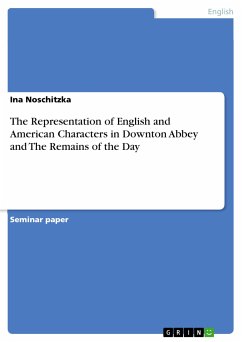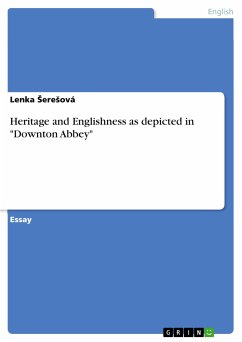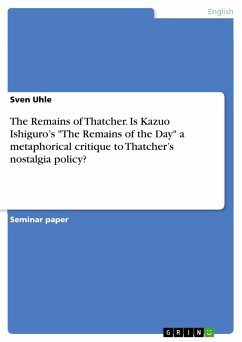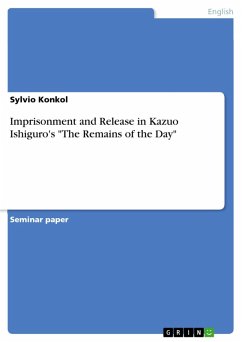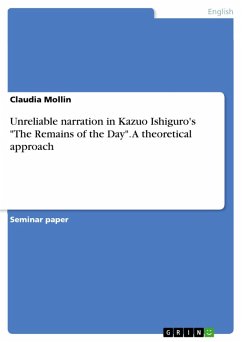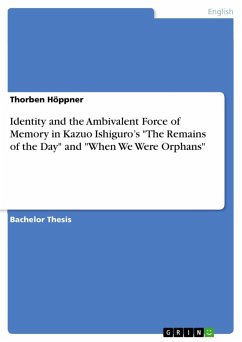Seminar paper from the year 2017 in the subject English Language and Literature Studies - Other, grade: 2,0, University of Frankfurt (Main) (English Studies), language: English, abstract: The declaration of independence was signed in 1776 and by freeing the American colonies from the British rule it marked an important step in the relationship between England and America. Many settlers left England in search of religious freedom and to start a society with new rules and values. In both "Downton Abbey" and "The Remains of the Day" the rules and values embodied by the American characters are way more modern than the English ones. To truly understand the differences between English and American characters one first has to ask: what exactly is "Englishness" and how do the American characters show contrast to that? Doyle mentions "a national sense of ancestry, tradition and universal 'free' citizenship" in "English & Englishness" and thus takes up one of the most important aspects: tradition. The American characters in "Downton Abbey" do not value tradition as much as the English ones do. A reason for that may be the fact that America does not have as much of a country's history as England does. The aristocracy and class system in England may be a "national disunity" but it is nevertheless an aspect that has strongly shaped the English society. This is clearly shown in "Downton Abbey" where the main characters are consequently divided into 'masters' and 'servants'. Even though there seems to be a serving class under the wealthy Americans, too, they have no aristocracy in America. A point that gets more attention than the aristocracy in "The Remains of the Day" is the importance of dignity. The protagonist Stevens dedicates the majority of his thoughts to the question of a good butler. In his mind this question is strongly linked with a feeling of dignity and the question of how one should behave. It gets obvious that in his opinion his former employer Lord Darlington knew how to behave while the American gentleman Mr. Farraday often brings "bewilderment, not to say shock" about. A similar opinion is held by the Dowager Countess Lady Grantham. She is openly judging Martha Levinson's manners and behaviour. Boyle also mentions the importance of a country's own language and culture and the education of it. Another aspect is the love of one's country and landscape that is stressed by Stevens during the beginning of his journey.
Dieser Download kann aus rechtlichen Gründen nur mit Rechnungsadresse in A, B, BG, CY, CZ, D, DK, EW, E, FIN, F, GR, HR, H, IRL, I, LT, L, LR, M, NL, PL, P, R, S, SLO, SK ausgeliefert werden.

